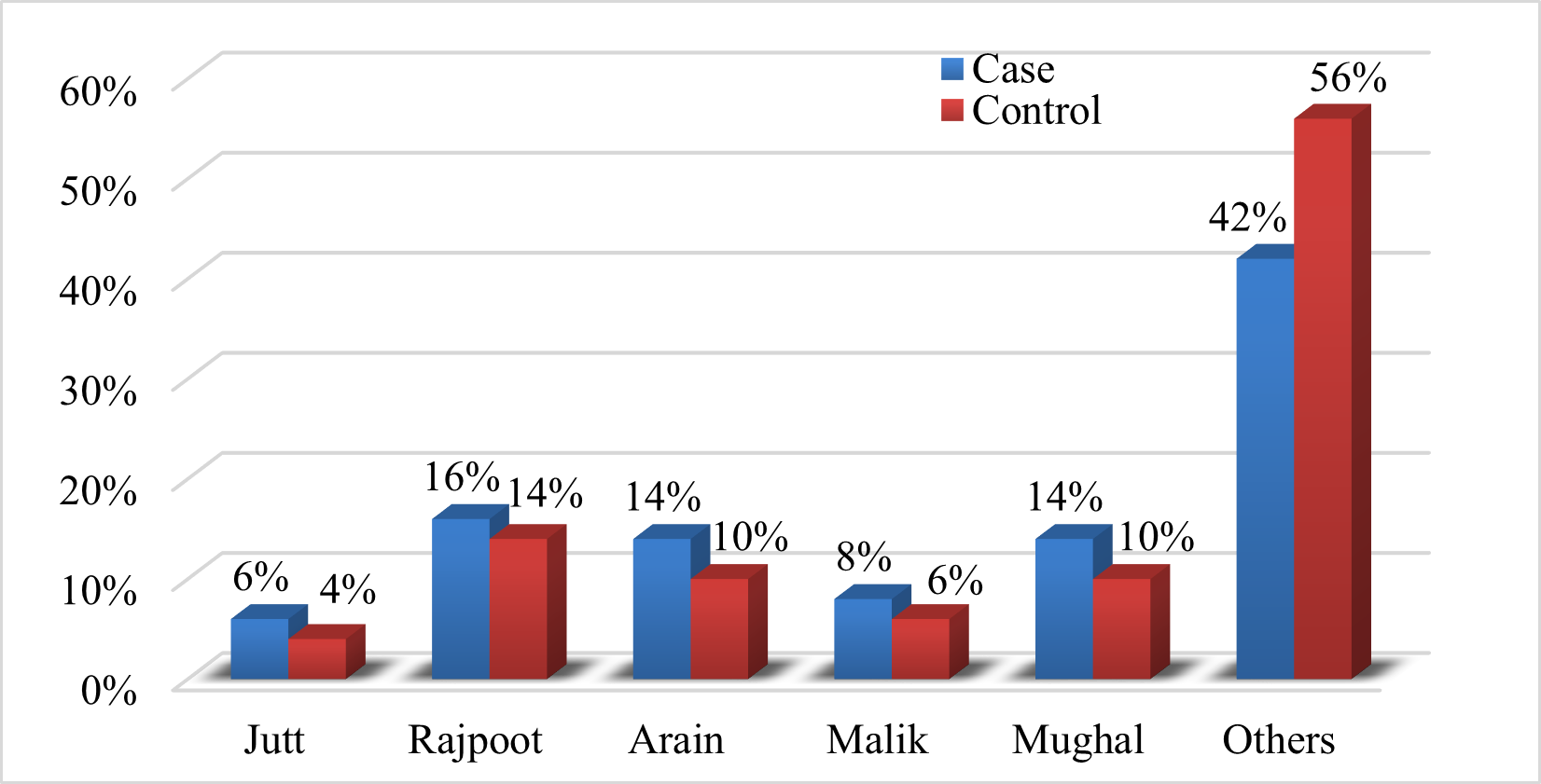Detection of Single Nucleotide Polymorphism (SNP) rs2235371 of IRF6 Gene in Patients with Non-Syndromic Cleft Lip and Palate
Abstract
 Abstract Views: 0
Abstract Views: 0
The orofacial clefts are the most common structural birth defects among newborn babies. They consist of two groups, namely Cleft Palate (CP) and Cleft Lip (CL). Infants born with clefts have considerable problems during communication, swallowing, and face certain challenges due to facial deformity. These problems remain throughout the life if not treated and entail long-lasting effects on the health and social life of an individual. Untreated infants need special care as they have higher morbidity and mortality rates. The primary objective of this study is to detect the Single Nucleotide Polymorphism (SNP) rs2235371 within the IRF6 gene and assess its potential association in patients diagnosed with Non-Syndromic Cleft Lip/Palate (NSCL/P). The participants were selected through a non-probability sampling technique, specifically the purposive sampling method. In accordance with this approach, a total of 50 patients afflicted with NSCL/P, representing both the genders, were sampled. Furthermore, to establish a comparative baseline, an additional 50 healthy individuals were also recruited to serve as the control group. After taking their informed consent, blood was collected in EDTA vials. PCR (Polymerase Chain Reaction) and RFLP were performed on each sample to find SNP. After sample collection, processing, and analysis, SPSS (20.00 version) was used to analyze all previously generated data. After sample analysis, 72% of CL/P (cleft lip and palate) patients were found to have SNP with or without a family history. The association of SNP rs2235371 with disease was measured by applying chi-square. The results provided no evidence of the association between given SNP and disease. As compared to previous research, this study showed a low frequency of SNP rs2235371 in patients with NSCL/P. To get a better understanding of the association of SNP rs2235371 with NSCL/P, large-scale research with an increased sample size should be conducted.
Downloads

Copyright (c) 2024 Kifayat Ullah, Tooba Komal, Ghafran Ali

This work is licensed under a Creative Commons Attribution 4.0 International License.
Author(s) retain copyright and grant the journal right of first publication with the work simultaneously licensed under a Creative Commons Attribution (CC-BY) 4.0 License that allows others to share the work with an acknowledgment of the work’s authorship and initial publication in this journal.






